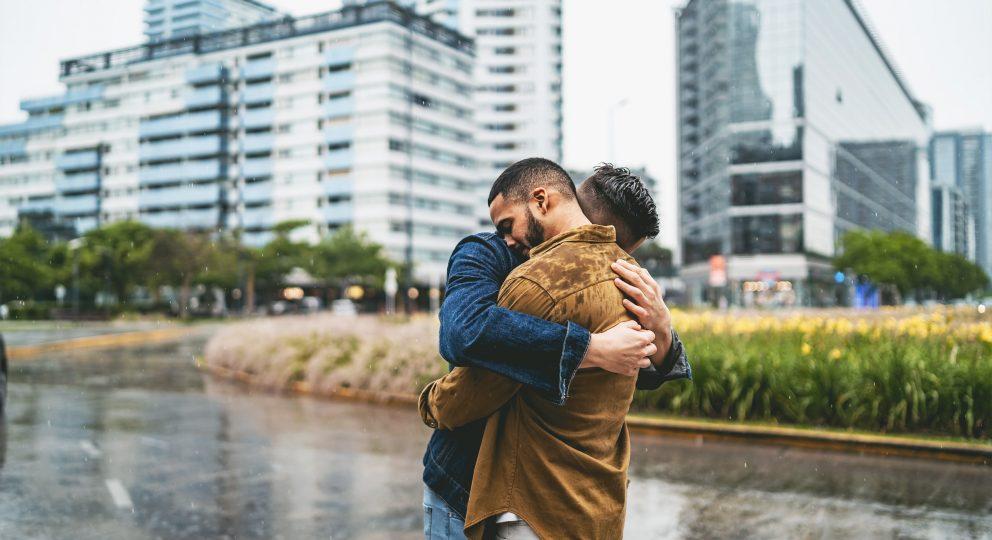Content warning: emotional violence, abuse
Emotional abuse is real. In my line of work, I’ve watched women of all different backgrounds live through the pain it can cause, and I’ve seen it haunt them. I’ve seen them suffer the trauma of someone dominating, berating, criticizing, and chastising them.
It brings unanswered questions. Questions like whether the very act of breathing is allowed. I’ve witnessed their agony of hoping that someone, anyone, will finally notice their torment.
Although emotional abuse has many forms, it’s still wildly taboo and often considered something people should just get over or simply live through. It can leave victims completely unaware that they’re even being oppressed.
They feel that it’s not as nearly as “bad” as physical violence or that they aren’t in the same situation. And in some cases, they feel they simply aren’t worthy enough to call themselves violated.
Whether pain from abuse stems psychologically, verbally, physically, emotionally, or sexually—abuse is abuse. And it needs to be stopped before another person has to suffer in silence.
I’m reminded of the old adage, “Sticks and stones may break my bones, but words will never hurt me.” But in all truth, words do hurt.
How emotional abuse feels
I stop short of the door and hold my hand against the frame. I just want to leave so bad. I know somewhere inside that I don’t have to take this. I am free to simply walk out of the door. But I am frozen. Transfixed by the threshold, unsure of how to cross while keenly aware of how many steps there are toward freedom. Gripped by courage, I take a step forward.
“Where do you think you’re going?” I freeze again, feeling the hairs stand up on my neck.
Hearing his voice so close, I want to scream. Subliminally I bolt, not physically but emotionally, running freely. I watch my imaginary self run away, stationary. I stare ahead, watching, oh how I envy her.
Psychologically, I can feel my overwhelming desire to just get away—to run and find a way to completely disappear. He speaks again and the echo of his hate hangs in the air, unsettled, like a rancid stench. I feel smothered by the scent and I grapple with the meaning of words that he speaks at me. The ruthless force of his weapon of words, aimed at my jugular, he wields indifferently. It is dehumanizing.
I wonder how many times I would let the effects of such an attack be a part of my life. How long would I stay put and continue to just endure? How long would I allow the steady stream of vulgarities and disparities to fill space in the vulnerable recesses of my self-esteem, or what was left of it? I can’t explain away why this hurts so badly, why the memories stay etched in the fibers of my muscles as if I were being physically struck every single time he opens his mouth.
I bruise in the form of a blush as my cheeks fill with heat from the harassment and embarrassment of the steady barrage of animosity that spews from his mouth when he directs his anger at me. I flinch and attempt to speak up. Raising my voice, I pretend to find courage.
Every time he is triggered, I fleetingly try to defend myself. I imagine standing my ground while weakly defending my principles as I am annihilated by the sheer brute force of his words. He speaks and his power shuts off my reasoning and takes seize of my oration. In stunned silence, his assault leaves me inundated with fear and has literally forced my words to recoil back into my throat, extinguishing the very air from my chest.
Defenseless and silent, I again attempt to summon my deserted courage, finding none. So many times, tears spill from once dry places, saturating my hot cheeks. And I take it. All of it. The full force of his revulsion, saying nothing in return.
How often I just take every verbal blow, every strike against the temple of my ego. I find myself listening hungrily, gobbling up every detail of what is wrong with my person. My sullied thoughts can no longer comprehend my ability to try and defend myself. I recognize that I don’t have any of the ammunition needed for this battle.
I wait, pitiful and exhausted, as his abusive tirade doesn’t show signs of ending. My attacker screams poison and I’m paralyzed as his vitriol intensifies, relentlessly pointing out fallacy after fallacy. I find that I cannot stand, so I finally sit down.
This only seems to reinforce my vulnerability and inferiority. Now he is standing over me, conquering me. His spittle flies from the hate-filled spaces in his mouth as he covers me in his blatant and unforgiving verbal attack. His speech never falters. He’s dramatic and animated, as if giving an audition to an unseen crowd. Forced to listen to his words, as he calls me a “slut and a whore,” I try to drive the unyielding impressions from my mind. Nevertheless, I can feel myself recording him, pervasively, into the deep and unprotected crevices of my hearing, defining me.
He waits only for silent applause from his own spirit. Enjoying his speech, he smiles at my deprivation as he goes for the kill. “Your stupidity knows no bounds,” he yells, “your incompetence is at an all-time high.” He screams more hate, “You’re fat, ugly, and useless. No one wants you, you’re unlovable, undeserving, undesirable,” and he ends with the booming, “You’re nothing.”
Again, I take it all in, memorizing every detail from the jarring baritone of his voice to the sadistic way he crafts his words. Every time I survive this experience, I still die, just a little, on the inside. I can’t help but seek the sweet and silent solace of death, feeling like this has to be the only way out.
Emotional abuse is just as damaging
This is just one example of how emotional abuse is experienced. It makes the recipient think there’s no way out, and no way to overcome all that they have gone through. The unhealthy tethers to their abuser are simply a coping mechanism and make it so much easier to believe the lies—like verbal abuse isn’t “real” abuse.
Most people don’t recognize that emotional abuse is just as damaging and traumatizing as physical abuse, sometimes even more so. While physical bruises will fade over time, emotional bruising leaves an invisible disfigurement that materializes as soon as the wound is reopened.
So many people suffer in an unacceptable silence, dealing with the emotional scars as if they were never there. No amount of makeup can cover the unseen evidence and as a result, many women try to pretend it never happened.
The heartless onslaught of pain that is created by verbal manipulation and abuse takes the battered to a place of hopelessness and introduces them to a type of emotional suicide. They never know how to accept what they are surviving. People around them tend to admonish them or minimalize their trauma.
“All he does is yell at you. You got it easy.”
These statements make abused women feel like they shouldn’t even try to escape. That they should be accepting and even appreciative that their abuser doesn’t physically assault them. No one sees the patterns of self-defeat and destruction that come from these types of assault.
I want women, and men, to recognize their worthiness. Everyone is worthy of being treated with respect. Your opinions and your desire to have autonomy over your life does not give someone the right to hurt you or your feelings. You deserve to find someone who truly loves you for who you are. Someone who understands what you need and doesn’t feel threatened by you offering your opinion.
Real freedom means “free at heart and free in mind.” You have to begin to realize that you are worthy and to remind yourself of this every day. You have to rebuild the positive levels of self-preservation that your self-esteem needs to heal.
You can do this. You deserve this and you have to see it first for yourself. You have to un-believe the lies and trust that there is hope for you.
It’s this way of thinking that will lead you towards the path of healing, and in the process, you’ll recognize that you don’t have to pretend not to hurt, you can recognize that your pain is real and that your voice deserves to be heard.
So speak up and acknowledge that words hurt, too.
National Suicide Prevention Lifeline
We can all help prevent suicide. The National Suicide Prevention Lifeline provides 24/7, free, and confidential support for people in distress, prevention and crisis resources for you or your loved ones, and best practices for professionals. If you or a loved one are at risk, dial 1-800-273-TALK (8255). The service is available to everyone. The deaf and hard of hearing can contact the Lifeline via TTY at 1-800-799-4889. All calls are confidential. Contact social media outlets directly if you are concerned about a friend’s social media updates or dial 911 in an emergency.
National Domestic Violence Hotline
If you’re in an abusive relationship, you are not alone. Call the National Domestic Violence Hotline at 1−800−799−7233 or TTY 1−800−787−3224. You can also visit the web site.







